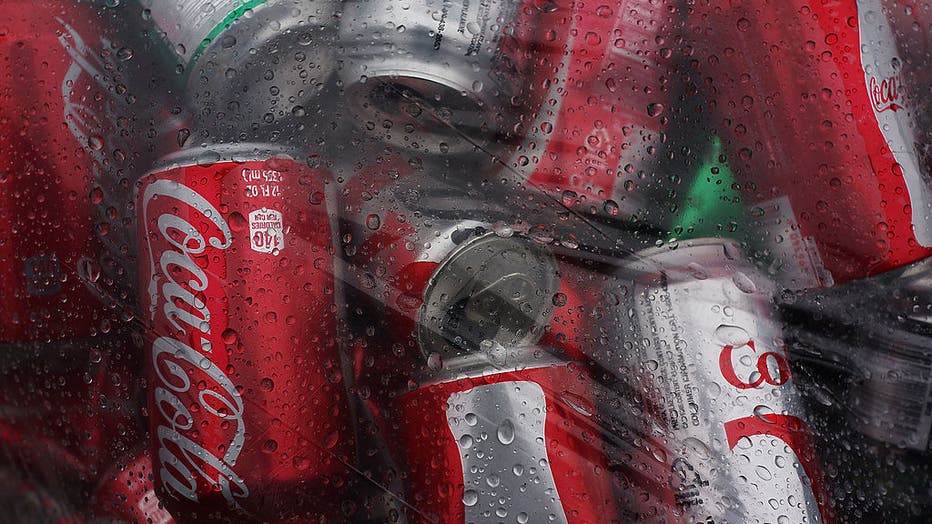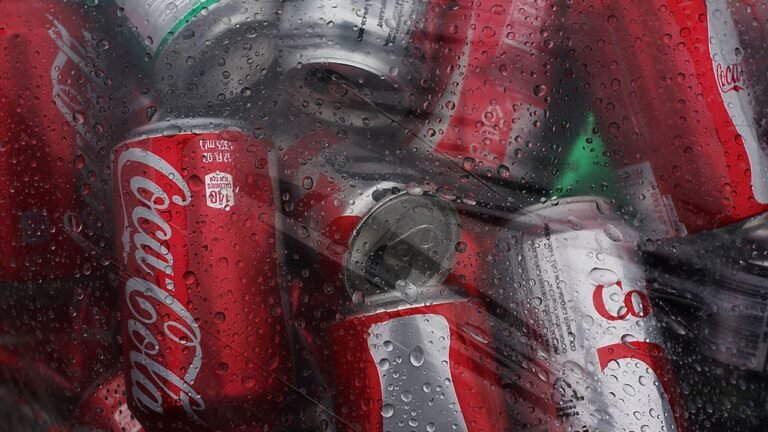FILE – Containers of Coca-Cola and various other drinks rest packed for reusing at a container redemption facility in Oregon, where legislators are thinking about adjustments to the state’s site container down payment legislation. ( Picture by Spencer Platt/Getty Images)
After greater than half a century, Oregon’s groundbreaking container down payment legislation might quickly look really various.
A brand-new proposition looks for to upgrade the state’s first-in-the-nation “container costs” by putting time frame on when containers and containers can be returned, and by producing different redemption websites in cities like Rose city.
The objective: convenience stress in between area participants, stores, and those that rely on tinning for revenue, as problems place concerning security, substance abuse, and being homeless around some redemption focuses.
While some applaud the adjustments as essential, others advise they may go also much– or otherwise much sufficient.
Why is Oregon transforming its container down payment legislation?
The backstory:
Oregon’s container costs, come on 1971, was a site ecological legislation made to decrease trash by offering customers a little reimbursement for each qualified drink container returned. At first evaluated 5 cents, the down payment climbed to 10 cents in 2017, and the program broadened to consist of even more sorts of containers.
The state currently flaunts the highest possible redemption price in the nation: 87% of containers were returned in 2023. Twenty-seven committed facilities run throughout Oregon, consisting of centers like Individuals’s Depot under a Rose city bridge, where employees refine 10s of hundreds of containers every day.
What we understand:
The brand-new regulation intends to stabilize ecological objectives with public security by upgrading just how and when containers can be returned throughout the state.
The suggested costs would certainly:
- Permit all shops to quit approving container returns after 8 p.m.
- Let Rose city stores restrict or reject hand-counted returns after 6 p.m.
- Introduce mobile redemption devices and various other nonprofit-run options in city locations.
- Make it possible for some shops near these different websites to pull out of approving returns entirely.
Sellers, consisting of the Plaid Cupboard ease chain, sustain the adjustments, mentioning security problems connected to individuals compensatory containers late in the evening.
Residents like Monica Truax, that lives near a redemption facility in Rose city, informed the AP her once-quiet community currently encounters recurring concerns with medicines, trash, and physical violence.

DOCUMENTS – Containers of Coca-Cola and various other drinks rest packed for reusing at a container redemption facility in Oregon, where legislators are thinking about adjustments to the state’s site container down payment legislation. (Picture by Spencer Platt/Getty Images)
What we do not understand:
It stays uncertain the amount of mobile redemption websites will certainly be produced– or just how quickly. Legislators have actually likewise not settled whether the state will certainly reroute unclaimed down payment cash, which movie critics state might money ecological programs. In 2019 alone, the Oregon Drink Recycling Cooperative (OBRC) maintained over $30 million in unclaimed reimbursements.
What they’re claiming:
In composed testament, Kristofer Brown of Individual’s Depot recognized the divide over the costs however stated many people that retrieve containers depend on it to make it through. “Given that coming to be supervisor of Individuals’s Depot, I’m discovering just how polarizing The Oregon Container Expense is,” he stated.
Jonathan Polonsky, Chief Executive Officer of Plaid Cupboard, formerly said in The Oregonian/OregonLive that the system threatens staff members forcibly them to approve late-night returns from individuals that might be intoxicated or hostile. He kept in mind that a handful of containers can purchase sufficient fentanyl to feed dependency.
On the other hand, area participants like Truax state the spirit of the initial legislation has actually been shed: “It’s simply a mess,” she stated.
Why you need to care:
This isn’t almost reusing. For some, the 10-cent reimbursement per container is a lifeline. For others, it’s a safety and security problem that intimidates regional organizations and areas. What takes place in Oregon might affect various other states with comparable systems– and improve the nationwide discussion around ecological programs and social effect.
What’s following:
The costs has actually currently passed the Oregon Us senate and is currently in your house. Legislators have till late June to wrap up the regulation.
The Resource: This record is based upon Associated Press reporting from Rose city, Oregon. It consists of straight quotes from locals, legislators, and stakeholders as offered in AP meetings and public testament. Information from the Oregon Alcohol and Marijuana Compensation and a 2020 state audit of the container costs were likewise mentioned. This tale was reported from Los Angeles.



